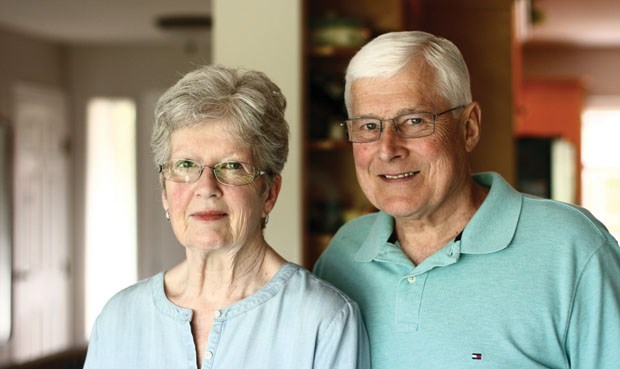Robyn Moro has finally found the peace she so desperately sought.
The 68-year-old Tsawwassen woman, who was one of two individual plaintiffs in the B.C. Civil Liberties Association legal challenge to Canada’s assisted dying laws, has died.
Moro, who suffered from Parkinson’s, became a plaintiff in the case after doctors denied her request for a medically assisted death on the basis she did not meet the eligibility criterion of having a reasonably foreseeable natural death.
In a statement on the association’s website, Robyn’s husband Lenard Moro said his beautiful, brave wife died, with medical assistance, surrounded by love in their home on Aug. 31.
“All of us who knew and treasured Robyn are grieving our loss. After 48 years of marriage, I am missing Robyn in every moment,” wrote Lenard. “Amidst our grief we find comfort in the knowledge that Robyn is no longer suffering. After trying so many different treatments that didn’t work, Robyn was desperate for relief.
“She wanted to pass with medical assistance in the spring of this year, but was told by her doctors that she was not eligible because the current laws in Canada require that natural death be reasonably foreseeable before a doctor can assist with death. Doctors could not say that Robyn would die any time soon, so she was left to suffer indefinitely.”
He said Robyn spent the summer suffering terribly.
“Robyn was re-assessed for a medically assisted death at the end of the summer, and this time was found eligible,” Lenard said. “Her pain had gotten even worse, but that is not why she was found eligible. I am told she was found eligible now only because of the interpretation of the law given by an Ontario judge.
“It seems very wrong that someone could be denied an end to their terrible suffering because they were not going to die. It seems just as wrong to be ineligible one day and then eligible the next based solely on an interpretation.”
He said Robyn joined the legal challenge because she believed every person deserves compassion and choice.
“Robyn did not trust the Canadian government with her end of life matters, nor do I. The law is wrong. It is cruel. In Robyn’s memory, we carry on the fight,” he said.
Association lawyer Jay Aubrey has also vowed to continue the fight on behalf of Robyn and so many others who are left to suffer without the right to choose.
“Despite your pain, you never faltered in your conviction to fight unjust laws that deny individuals the final choice over how much suffering they will endure prior to their death,” wrote Aubry in a message on the association’s website.
“Thank you for your example. In choosing to gently let go of life with the assistance of a medical doctor, and limit the amount of suffering you would endure, your death was a final, courageous show of compassion to yourself.
“We say goodbye for now, with the promise that we will continue to fight for compassion and choice.”



